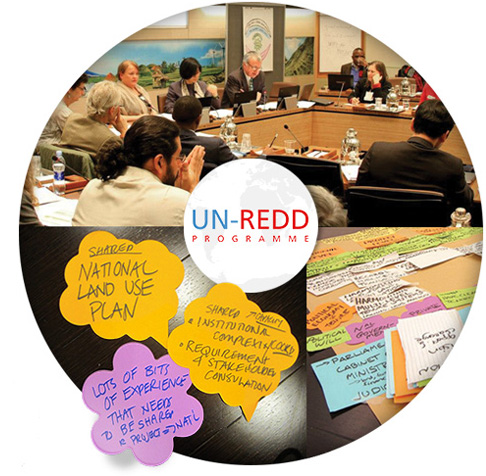Governance of tenure newsletter

Dear friends,
On 14 January 2013, Olivier De Schutter, United Nations Special Rapporteur on the Right to Food, at the Twenty-second session of the Human Rights Council at the General Assembly of the United Nations commended the work on the Voluntary Guidelines on Responsible Governance of Tenure.
“This marks a new era for international cooperation on land issues”, states the report. Read the whole report: English
Regional working meetings – two completed, next ones coming up
Regional awareness raising workshops for francophone and anglophone Africa took place from 4-6 December 2012 in Yaoundé, Cameroon and from 12-14 February 2013, in Kigali, Rwanda. The workshops provided an opportunity for participants to learn more about the Guidelines, to identify ways to improve governance of tenure and to propose ideas for implementing the Guidelines. Each workshop was attended by approximately 80 participants from around 20 countries representing governments, civil society, the private sector, academia and regional organizations, and draw from land, fisheries and forest sectors. Short reports on the first two regional awareness raising workshops are available here.
- Workshop report: Anglophone Africa, 12-14 February 2013, Kigali, Rwanda. English
- Workshop report: Francophone Africa, 4-6 December 2012, Yaoundé, Cameroon. English | Français
We are currently planning other regional working meetings covering all of FAO’s regions which will take place in 2013. The next meeting is scheduled for the week of 22-25 April in Amman, Jordan.
Improved tenure – a success factor for REDD+

Secure tenure in the sustainable management of forests remains to be one of the most crucial limitations to be resolved. An expert meeting was organized by FAO as part of the UN-REDD Global Programme and attended by over 60 participants on 25-26 February 2013. This dialogue between REDD+ country representatives, CSOs and international institutions was based on scenarios at national, sub-national, landscape and local levels of interventions under REDD+. In order to carry out policy, legislative and institutional reform, the participants identified prioritized actions for improved legal frameworks, cooperation between government bodies and civil society and increased stakeholder participation, in particular by local communities and indigenous peoples.
One important outcome of the meeting is that REDD+ provides a critical opportunity to achieve sustainable forest management and mitigation action and constitutes a catalytic momentum for a renewed interest in securing and protecting tenure rights for local communities and indigenous peoples. Since such opportunity requires a broad approach to address tenure, the Guidelines can assist greatly in improving the legal frameworks at national and local levels.
The report gives detailed information on the meeting’s objectives, process, the participants, group findings, evaluation and next steps to be taken. The report lays the foundation for establishing a “community of practice” to work on tenure under REDD+, closely linked to the work on legal preparedness for REDD and informed by the progress in implementing the Guidelines.
- Read more about the background material of this meeting and find the report which is expected to be available next week on the UN-REDD workspace
- Visit the UN-REDDprogramme website
New publications online
Our latest publications can now be downloaded from the web: Land Tenure Working Paper 23: Large agricultural investments and inclusion of small farmers: lessons of case studies in 7 countries English | Français Our latest publications can now be downloaded from the web: Land Tenure Working Paper 24: Land reform in Central and Eastern Europe after 1989 and its outcome in the form of farm structures and land fragmentation. English
